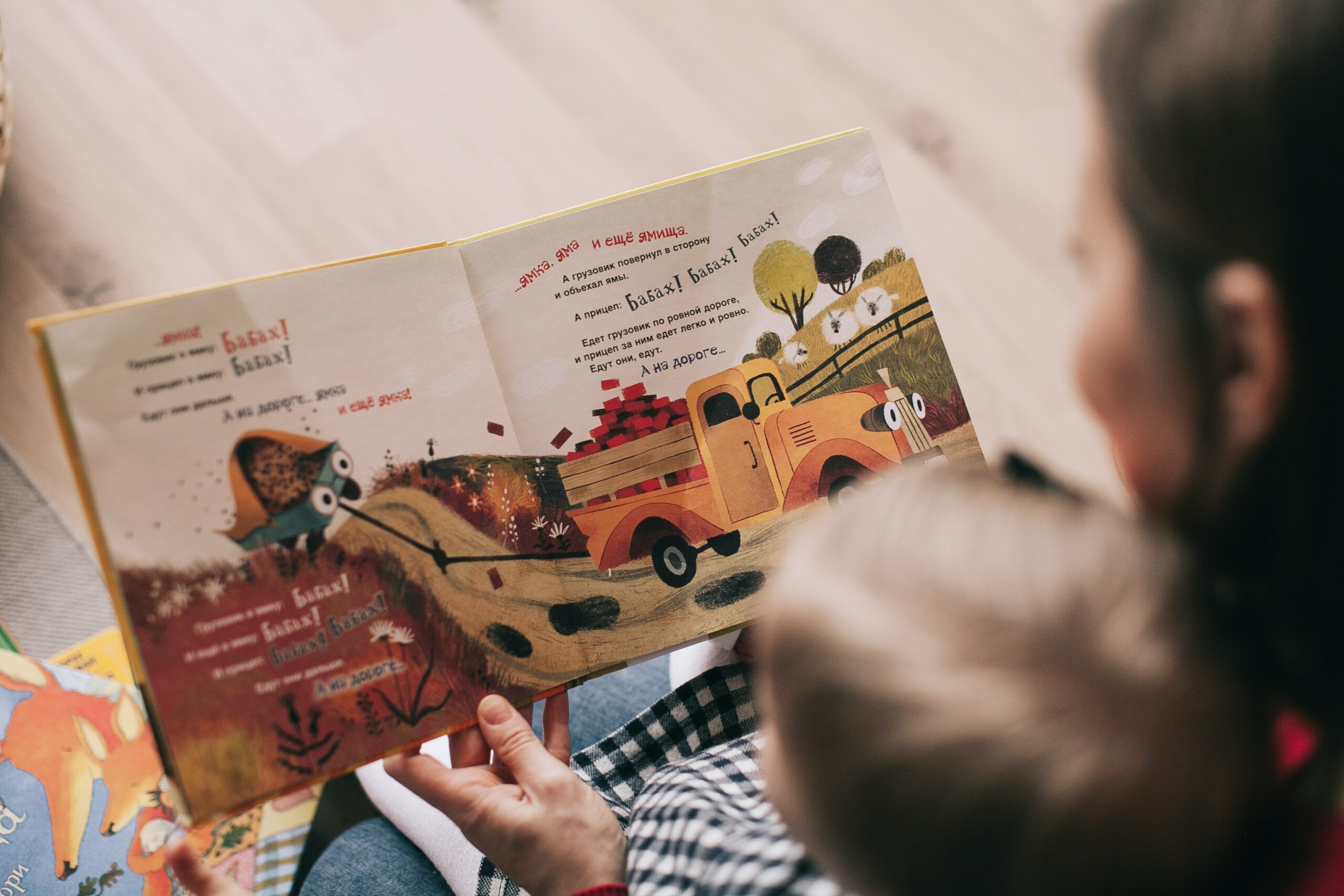As a speech-language pathologist and mom, I am constantly amazed by the role that books play in nurturing early language development in babies. The simple act of reading to your child can pave the way for a rich and expressive language journey. In this blog post, let’s explore how books serve as tools for teaching babies to talk and share practical tips for making the most of this language-building experience.
Language Exposure
Books provide a wealth of language exposure for babies, even from the earliest stages of life. When we read to babies, they absorb the rhythmic patterns of language, the cadence of our voices, and the melodic flow of storytelling. This exposure lays a solid foundation for language development and helps babies become familiar with the sounds, intonations, and vocabulary of their native language.
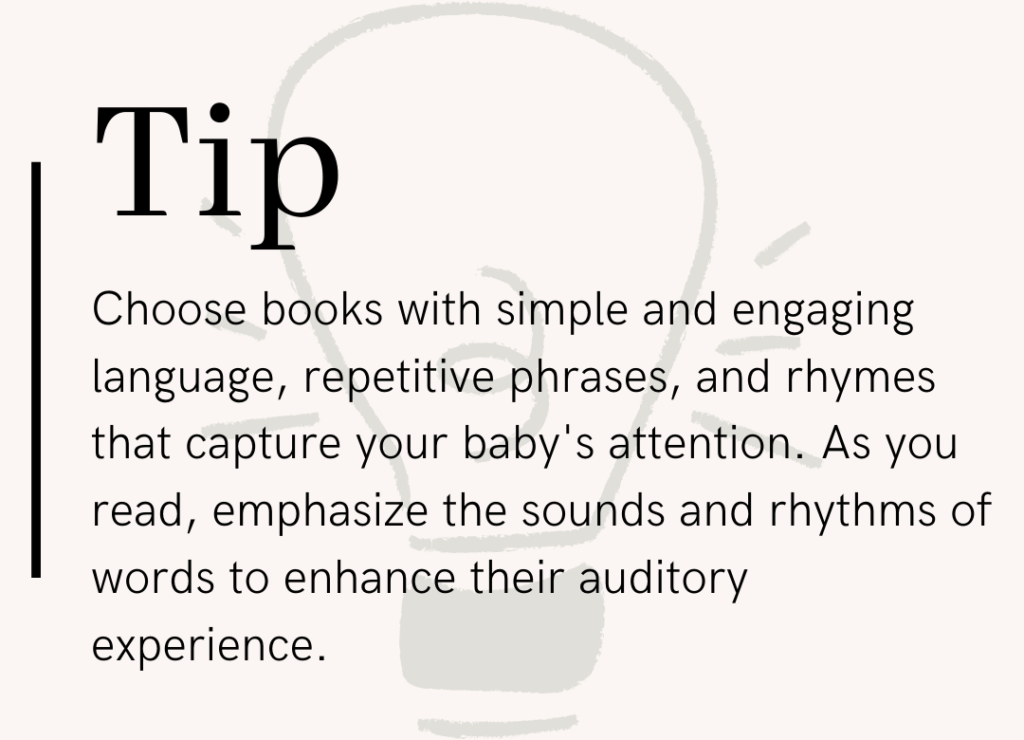
Vocabulary Expansion
Books offer a vast array of words and concepts that babies might not encounter in their everyday conversations. By introducing new words, books expand babies’ vocabulary and provide opportunities for them to learn and imitate new sounds and words. The more words babies are exposed to, the richer their language skills become.
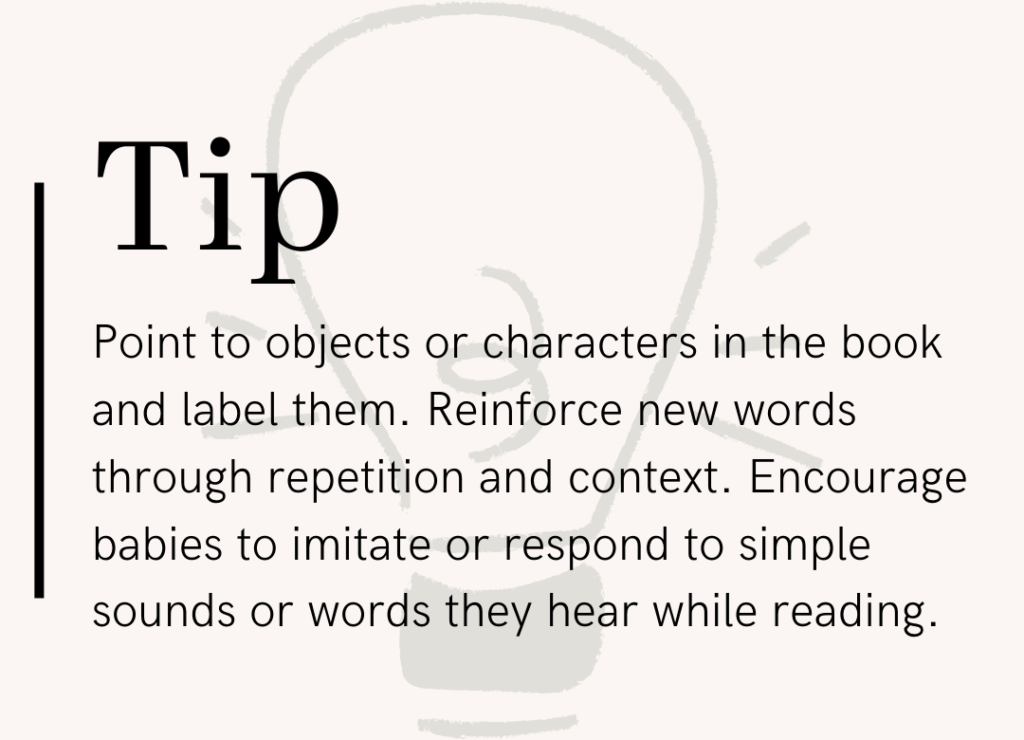
Concept Development
Books introduce babies to a range of concepts such as colors, animals, and emotions. These concepts lay the groundwork for cognitive development and help babies understand and interact with the world around them. By connecting words with concrete objects or images, babies start to develop a deeper understanding of the meaning behind the words.
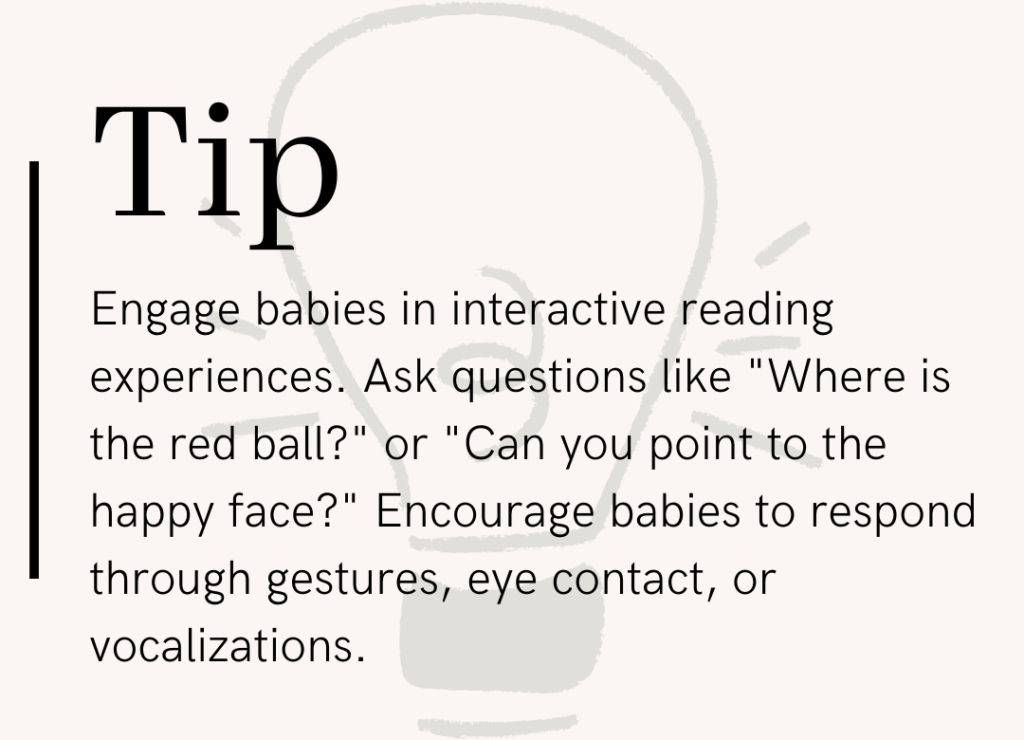
Social Interaction
Reading together creates a special bonding experience between babies and their caregivers. It offers opportunities for shared attention, joint engagement, and social interaction. These interactions not only foster a loving connection but also enhance babies’ communication skills as they learn to engage, respond, and imitate the gestures, sounds, and expressions they observe during reading sessions.
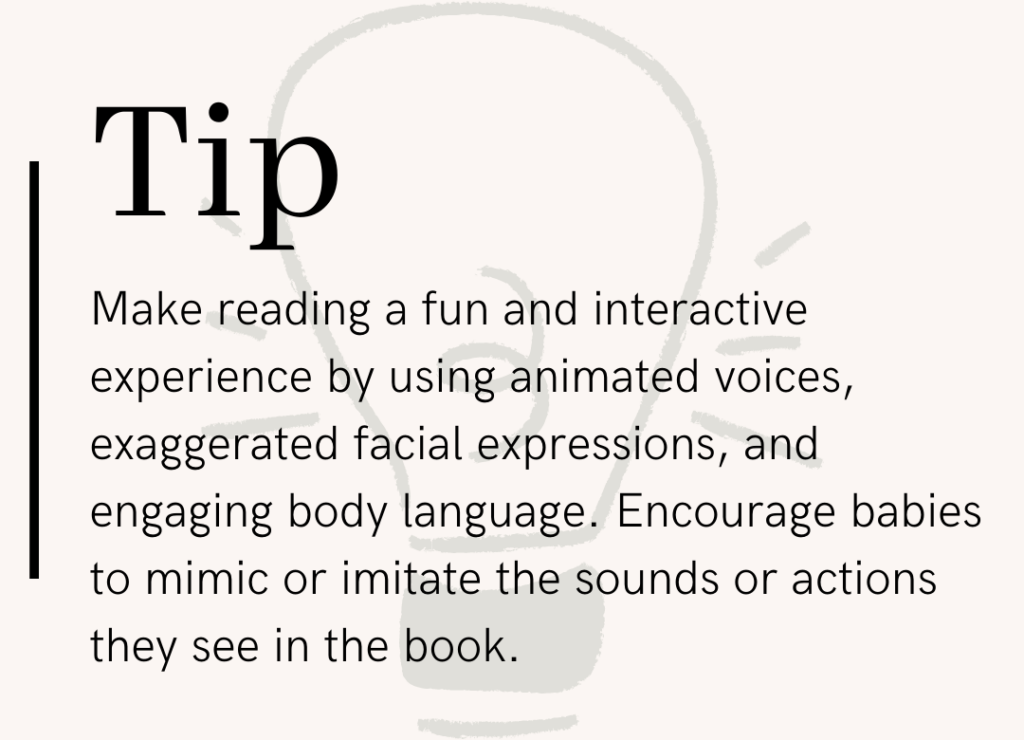
Narrative Skills
Books serve as early introductions to storytelling and narrative structure. Through stories, babies learn about the beginning, middle, and end of a sequence of events. They develop an understanding of characters, settings, and plotlines, which lays the foundation for narrative skills and coherent communication.
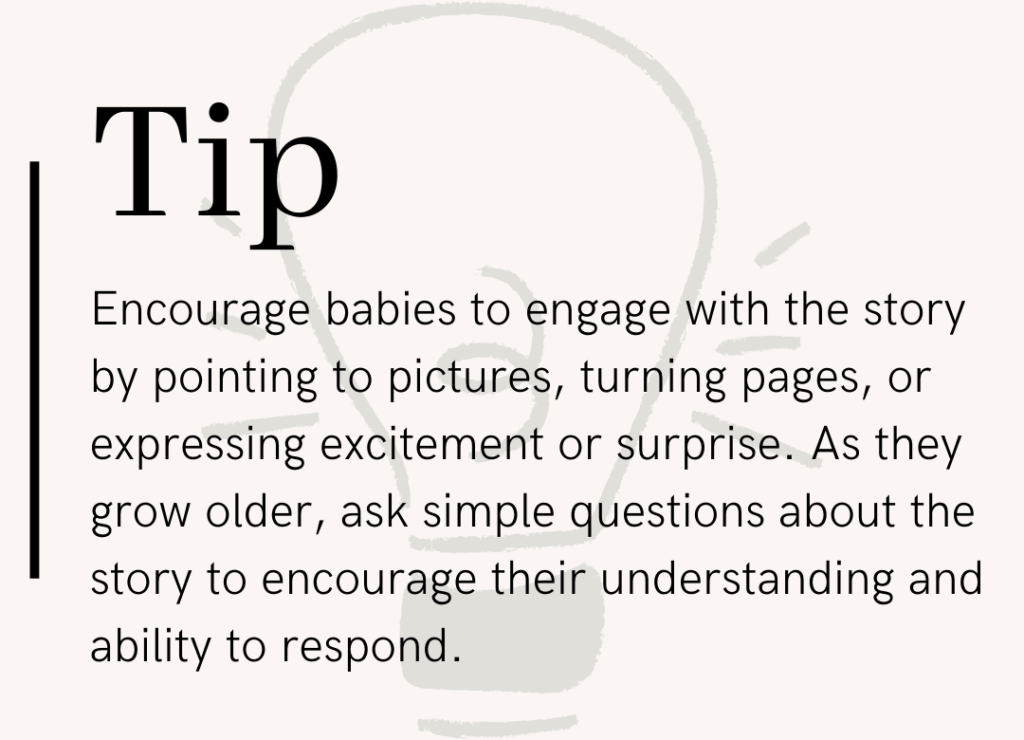
Books are remarkable tools for nurturing early language development in babies. By exposing babies to language, expanding their vocabulary, introducing new concepts, fostering social interaction, and building narrative skills, books play an instrumental role in teaching babies to talk. As speech-language pathologists, we encourage parents and caregivers to make reading a cherished part of their daily routine. Embrace the magic of storytelling, engage babies in interactive experiences, and witness the incredible journey as their language skills flourish. Together, let’s ignite a love for books and build a strong language foundation that will empower babies to become confident and articulate communicators.


